Lana Wachowski and Lilly Wachowski are American film and television directors, writers and producers. The sisters are both trans women.
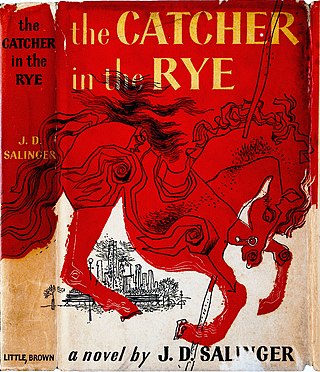
The Catcher in the Rye is a novel by American author J. D. Salinger that was partially published in serial form in 1945–46 before being novelized in 1951. Originally intended for adults, it is often read by adolescents for its themes of angst and alienation, and as a critique of superficiality in society. The novel also deals with themes of innocence, identity, belonging, loss, connection, sex, and depression. The main character, Holden Caulfield, has become an icon for teenage rebellion. Caulfield, nearly of age, gives his opinion on a wide variety of topics as he narrates his recent life events.

Kill Bill: Volume 1 is a 2003 American martial arts film written and directed by Quentin Tarantino. It stars Uma Thurman as the Bride, who swears revenge on a group of assassins and their leader, Bill, after they try to kill her and her unborn child. Her journey takes her to Tokyo, where she battles the yakuza.

Tom Tykwer is a German film director, producer, screenwriter, and composer. He is best known internationally for directing the thriller films Run Lola Run (1998), Heaven (2002), Perfume: The Story of a Murderer (2006), and The International (2009). He collaborated with The Wachowskis as co-director for the science fiction film Cloud Atlas (2012) and the Netflix series Sense8 (2015–2018), and worked on the score for Lana Wachowski's The Matrix Resurrections (2021). Tykwer is also well known as the co-creator of the internationally acclaimed German television series Babylon Berlin (2017–).

Heaven is a 2002 romantic thriller film directed by Tom Tykwer, starring Cate Blanchett and Giovanni Ribisi. Co-screenwriter Krzysztof Kieślowski intended for it to be the first part of a trilogy, but Kieślowski died before he could complete the project. The film is an international co-production among producers based in Germany, France, Italy, the United States, and the United Kingdom. The dialogue is in Italian and English.
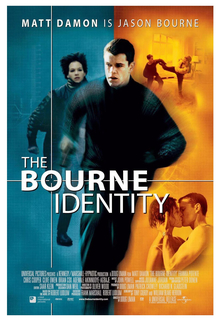
The Bourne Identity is a 2002 action-thriller film directed by Doug Liman and written by Tony Gilroy and William Blake Herron. Based on Robert Ludlum's 1980 novel of the same name, it is the first installment in the Bourne franchise, and the film stars Matt Damon, Franka Potente, Chris Cooper, Clive Owen, Brian Cox, and Adewale Akinnuoye-Agbaje. In the film, Jason Bourne (Damon) suffers from psychogenic amnesia and is forced to fight to unlock his identity and his mysterious connection to the CIA.
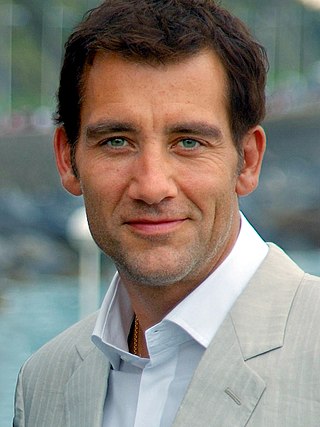
Clive Owen is an English actor. He first gained recognition in the United Kingdom for playing the lead role in the ITV series Chancer from 1990 to 1991. He received critical acclaim for his work in the film Close My Eyes (1991) before earning international attention for his performance as a struggling writer in Croupier (1998). In 2005, he won a Golden Globe and a BAFTA Award and was nominated for an Academy Award for his performance in the drama Closer (2004).
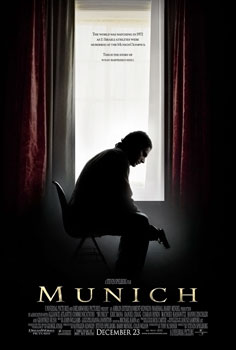
Munich is a 2005 epic historical drama film produced and directed by Steven Spielberg, co-written by Tony Kushner and Eric Roth. It is based on the 1984 book Vengeance by George Jonas, an account of Mossad assassinations following the Munich massacre.

Anthony Joseph Gilroy is an American filmmaker. He wrote the screenplays for the original Bourne trilogy (2002–2007) and wrote and directed the fourth film of the franchise, The Bourne Legacy (2012). He also wrote and directed Michael Clayton (2007) and Duplicity (2009), earning nominations for the Academy Award for Best Director and the Academy Award for Best Original Screenplay for the former.

Jan Mikael Håfström is a Swedish film director and screenwriter. He is best known for the 2003 film Evil, and the movie adaptation of Stephen King's short story 1408.
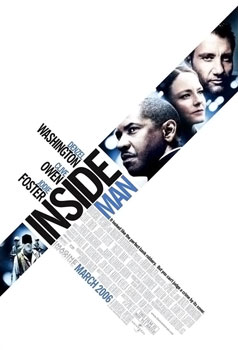
Inside Man is a 2006 American crime thriller film directed by Spike Lee and written by Russell Gewirtz. It centers on an elaborate bank heist-turned-hostage situation on Wall Street. The film stars Denzel Washington as Detective Keith Frazier, the NYPD's hostage negotiator, Clive Owen as Dalton Russell, the mastermind who orchestrates the heist, and Jodie Foster as Madeleine White, a Manhattan fixer who becomes involved at the request of the bank's founder Arthur Case to keep something in his safe deposit box protected from the robbers.
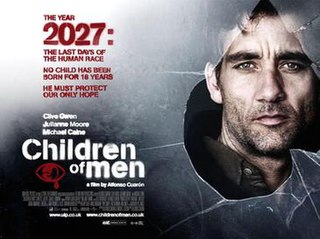
Children of Men is a 2006 dystopian action thriller film directed and co-written by Alfonso Cuarón. The screenplay, based on P. D. James' 1992 novel The Children of Men, was credited to five writers, with Clive Owen making uncredited contributions. The film is set in 2027, when two decades of human infertility have left society on the brink of collapse. Asylum seekers seek sanctuary in the United Kingdom, where they are subjected to detention and refoulement by the government. Owen plays civil servant Theo Faron, who tries to help refugee Kee escape the chaos. Children of Men also stars Julianne Moore, Chiwetel Ejiofor, Pam Ferris, Charlie Hunnam, and Michael Caine.

Perfume: The Story of a Murderer is a 2006 period psychological thriller film directed by Tom Tykwer, who cowrote the screenplay with Andrew Birkin and Bernd Eichinger, based on the 1985 novel of the same name by Patrick Süskind. The film stars Ben Whishaw, Alan Rickman, Rachel Hurd-Wood and Dustin Hoffman. Set in 18th-century France, the film tells the story of Jean-Baptiste Grenouille (Whishaw), an olfactory genius, and his homicidal quest for the perfect scent.

Interview with the Assassin is a 2002 drama/pseudo-documentary directed by Neil Burger and starring Raymond J. Barry and Dylan Haggerty.
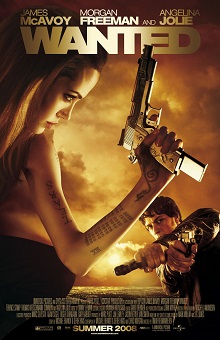
Wanted is a 2008 American action thriller film directed by Timur Bekmambetov and written by Michael Brandt, Derek Haas, and Chris Morgan, loosely based on the comic book miniseries by Mark Millar and J. G. Jones. The film stars James McAvoy, Morgan Freeman, Angelina Jolie, Terence Stamp, Thomas Kretschmann, Common, and Chris Pratt. Its plot revolves around Wesley Gibson (McAvoy), a frustrated account manager who discovers that he is the son of a professional assassin and decides to join the Fraternity, a secret society of assassins of which his father was a member.

Luca Calvani is an Italian actor.

Gemini Man is a 2019 American science fiction action thriller film directed by Ang Lee. It stars Will Smith in the main dual role, alongside Mary Elizabeth Winstead, Clive Owen and Benedict Wong. The film follows a retiring Force Recon Marine scout sniper who is targeted by a much younger clone of himself while on the run from a corrupt private military company.

Those Who Wish Me Dead is a 2021 American action thriller film directed by Taylor Sheridan with a screenplay by Michael Koryta, Charles Leavitt, and Sheridan, based on Koryta's novel of the same name. The film follows a boy who witnesses the murder of his father and goes on the run with a smokejumper in the Montana wilderness to escape a pair of assassins hired to kill him. Jon Bernthal, Medina Senghore, and Jake Weber also appear.

The Informer is a 2019 British crime thriller film directed by Andrea Di Stefano and written by Matt Cook, based on the novel Three Seconds by Roslund & Hellström. The film stars Joel Kinnaman, Rosamund Pike, Common, Ana de Armas, and Clive Owen.

The Killer is a 2023 American action thriller film directed by David Fincher from a screenplay by Andrew Kevin Walker. It is based on the French graphic novel series The Killer written by Alexis "Matz" Nolent and illustrated by Luc Jacamon. The film stars Michael Fassbender alongside Arliss Howard, Charles Parnell, Kerry O'Malley, Sala Baker, Sophie Charlotte, and Tilda Swinton in supporting roles. Fassbender plays an assassin who embarks on an international vendetta after a hit goes wrong.



















